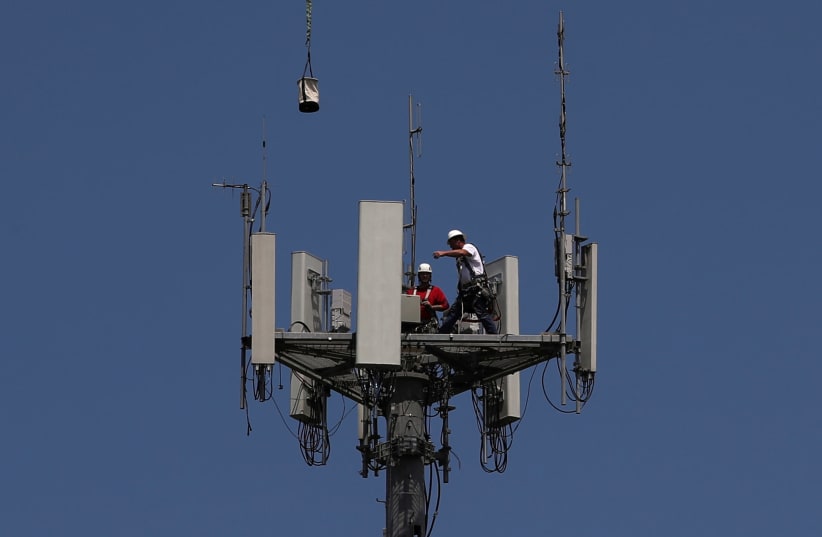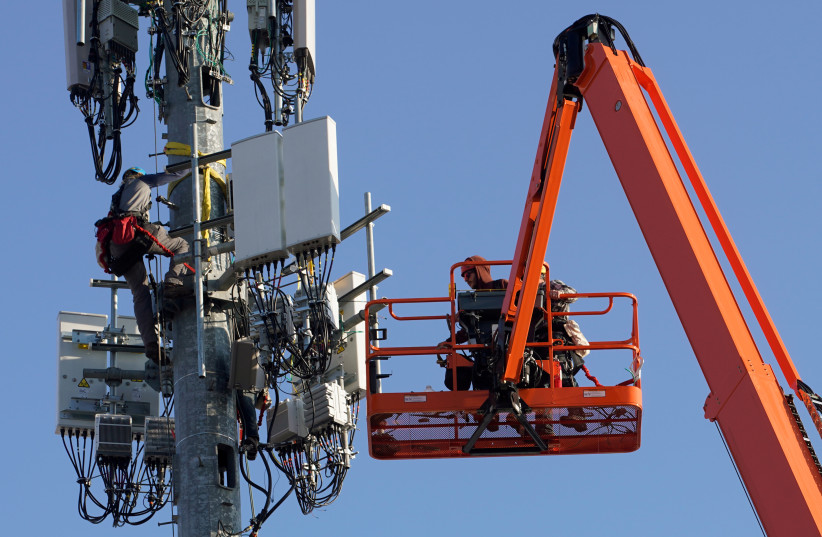The Communications Ministry and Israel Innovation Authority on Monday published a call for grants for the promotion and development of pilots based on 5G technologies. This is the sixth call in recent months, illustrating the government’s heavy interest in advancing 5G implementation in Israel and Israeli companies.
Israeli start-ups have until May 9 to submit a request to conduct 5G tech research and development at various sites such as campuses, public spaces and hospitals. Chosen companies will receive financial support of between 20%-50% of research and development costs. In addition, programs that have the potential to have an extraordinary impact on increasing the deployment and use of 5G infrastructures will be able to win up to 60% support for expenditures.
The call for proposals was published following last week’s Mobile World Congress in Barcelona, in which senior officials of the Communications Ministry participated along with eight of the 20 companies that won grants in previous calls. So far, about NIS 24 million has been invested in 19 projects.
“The deployment of [5G] technology will allow fast and maximized connectivity in factories, transportation systems, hospitals and more – and we are waiting for innovative programs to be submitted,” said Innovation Authority CEO Dror Bin, who went on to add that the program adds the valuable benefit of regulatory support to participating companies. “Apart from the funding within the track, companies will quickly receive a license for a wireless experiment frequency as well as a special license for the experiment.”
Time out: what’s 5G again?
5G is the fifth generation of mobile network technology that aims to provide faster internet connectivity and improved network performance than its predecessor, 4G. It uses higher-frequency radio waves than previous generations, which allows for more data to be transmitted at faster speeds with lower latency (delay).
Better virtual and augmented reality experiences, more advanced Internet of Things implementation and optimized remote work and education are among the several opportunities unlocked by 5G deployment.
“The 5G revolution is great news for the Israeli economy and industry, which will enable a breakthrough and the development of applications in a variety of sectors such as autonomous transportation, smart cities, remote medicine, augmented and virtual reality and artificial intelligence.”
Shlomo Karhi
“The 5G revolution is great news for the Israeli economy and industry, which will enable a breakthrough and the development of applications in a variety of sectors such as autonomous transportation, smart cities, remote medicine, augmented and virtual reality, and artificial intelligence,” said Communications Minister Dr. Shlomo Karhi.
“We invite Israeli companies to apply for grants. Together we will catapult Israel to the forefront of the global technological stage,” Karhi said.
From a governmental perspective, 5G is similar to fiber-optic internet in that it offers increased labor productivity, improved quality of life and the reduction of socio-economic gaps via more accessible education and knowledge resources.
As such, the Communications Ministry has leaned heavily into advancing both technologies: the effort to spread fiber throughout Israel has borne very satisfactory results (resulting in Israel ranking first in the world in the rate of fiber deployment), and 5G seems to be the next technology on the ministry’s roll-out list.
Recent adjustments to the Arrangements Law and the national budget have further enabled the promotion of 5G deployment in Israel. “Thanks to God and thanks to the prime minister for the vote of confidence... and the realization of the Communications Ministry’s goals at the top of the national priority list,” said Karhi, adding that 5G’s deployment will “boost the Israeli economy and advance Israel to the front of the global innovation stage in line with the leading countries in the world.”


